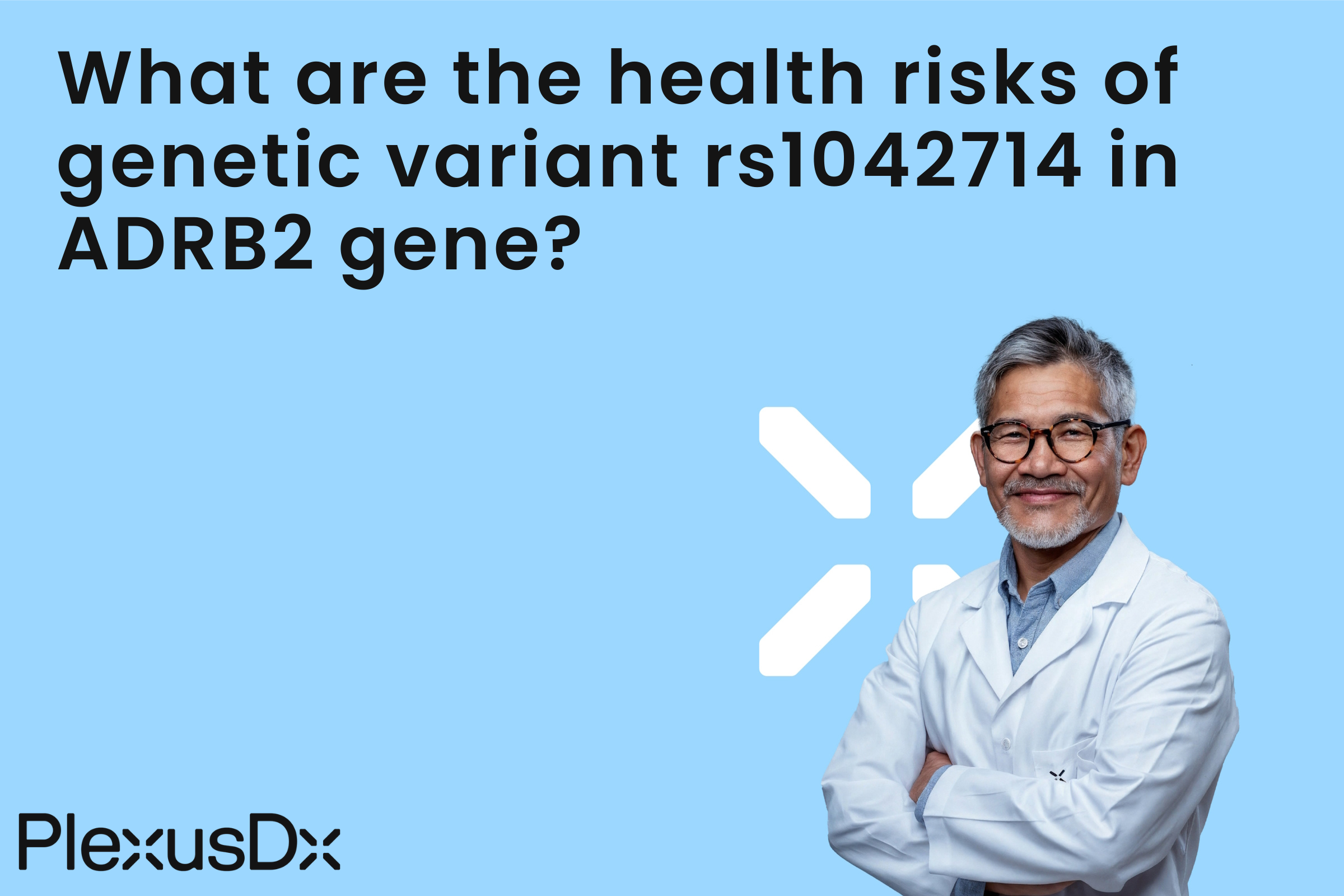PlexusDx: Exploring the Impact of the ADRB2 Gene on Weight Control and Body Fat Distribution
PlexusDx stands at the forefront of personalized health reporting to empower people by providing critical information about their genetic predispositions. Our exploration today dives deep into genetic complexities as we examine how the ADRB2 gene affects weight control and body fat distribution. Beta-2 adrenergic receptor production is controlled by the ADRB2 gene which functions as a major component of the sympathetic nervous system. The receptor binds to catecholamines with a special emphasis on adrenaline to influence multiple physiological mechanisms. Catecholamines such as adrenaline elevate cAMP levels when they bind to specific receptors which then initiate a series of reactions that affect muscle relaxation as well as fat burning and energy usage. The beta-2 receptors function as essential regulators by relaxing airway and smooth muscle tissues and simultaneously increasing skeletal muscle contractions. The synergistic effect of this dual action improves respiratory function and physical performance through better circulation. These receptors work together with beta-3 receptors located in fat tissue to initiate fat burning which results in energy release and heat production. The relationship between catecholamines, beta-2 receptors and fat metabolism highlights the complex mechanisms of energy regulation within the human body. The metabolic hormone leptin plays a crucial role in fat metabolism through a synergistic partnership with sympathetic activation and catecholamines to promote fat burning. The fat burning pathway becomes dysfunctional in obese people which results in the buildup of surplus fat reserves. The genetic variant rs1042714 which is also referred to as Q27E is now a prominent focus of obesity research studies. Research indicates that the minor 'G' variant of rs1042714 creates a 20% greater obesity risk among certain populations. This variant correlates with negative health consequences including increased cardiovascular event risks among coronary artery disease patients and higher Graves' disease vulnerability in Caucasian populations. The 'G' allele carriers demonstrate a decreased likelihood of developing asthma which reveals the intricate genetic interactions that determine disease vulnerability. Although rs1042714 shows relationships with traits linked to obesity researchers still do not understand the precise mechanisms responsible for these effects. The variant lacks direct effects on beta-2 receptor activity yet its impact on sympathetic nervous system function and fat metabolism needs more research. Researchers are working to understand the complex routes by which genetic variations such as rs1042714 affect physiological responses and reveal the relationship between genetic makeup and health outcomes. The genetic variant rs1042714 of the ADRB2 gene provides essential knowledge about the complex biological processes that control weight regulation and body fat distribution. Knowledge of genetic factors that influence obesity enables people to make health decisions based on solid information. Our readers should investigate PlexusDx's Precision Health & Wellness tests to obtain individual genetic predisposition information which allows them to make informed health decisions for their future well-being.

Share:
Which autoimmune diseases link to HLA-B27?
How can diet help those with PPARA rs1800206 SNP 'G' allele?